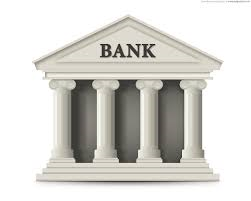What is Shadow Lending? The Key Things You Need to Know Like “shadow flipping,” the term “shadow lending” gets a lot of negative press. What it means and when it can be helpful. As seen in REW.ca
Over the last few years, the media has done a great job of telling wild stories about how so-called shadow lenders are seducing Canadians with bad loans, only to foreclose and steal their houses. The term “shadow” evokes all the right imagery: the back-alley deal, thugs with pipe wrenches, extortion and envelopes full of money.
The expression “shadow lending” (or “shadow banking”) is actually quite vague. It is a catch-all phrase that usually describes any practice of private lending done outside the walls of a traditional bank. So, if your parents loaned you $50,000 for a down payment, they are shadow lenders.
The Bank of Canada states, Shadow banking refers to a set of activities, outside the formal banking system, that carry out similar functions to those performed by banks.” It goes on to say that “while the term ‘shadow banking’ tends to suggest something secretive or illicit… on the whole, shadow banking serves a useful purpose.”
Shadow banking refers to a set of activities, outside the formal banking system, that carry out similar functions to those performed by banks.” It goes on to say that “while the term ‘shadow banking’ tends to suggest something secretive or illicit… on the whole, shadow banking serves a useful purpose.”
And one such useful purpose is increasing the choice of mortgage products for consumers.
Having more choices is one of the major benefits of working with a mortgage broker. As it becomes more difficult to secure traditional mortgage financing, due to government intervention, the alternative lending space is stepping up and creating solutions for clients who would otherwise be turned away from homeownership.
In other words, while the banks continue to narrow their qualifications, alternative lenders (private mortgage lenders) are filling the void and creating products priced based on risk. Sure, these products might come at a higher rate than a traditional mortgage. But ask yourself, if the bank turned you down for a mortgage for whatever reason, wouldn’t you want to at least be able to consider more options?
Here’s when getting a private mortgage makes sense:
- You are purchasing raw land or a unique property that traditional lenders won’t touch because it’s outside their lending criteria;
- You are looking at buying a property to flip or a home that is in major disrepair, and need the funds to do the renovations;
- You have been recently laid off or have lost your job for another reason, and you need money to tide you over while you are looking for a new job;
- You need access to equity in your home and the penalty to break your current mortgage is too high;
- You have credit issues such as a consumer proposal or bankruptcy and it is preventing you from getting a mortgage for the full amount that you need from a traditional lender and you need a “top up”;
- You need to consolidate high interest debt, and due to bruised credit, you have been turned down by traditional lenders;
- A divorce, illness or some other life-changing event has had a major negative impact on your credit rating or low income, and you need mortgage financing until you get back on your feet;
- You need to take out equity from your property to get back into good standing with an existing mortgage that is in arrears, power of sale or foreclosure;
- You are interested in purchasing a new home, you have a sizeable down payment, ideally at least 15% of the property value;
- You have an existing property with a small mortgage that leaves you with a fair amount of equity in your property. Ideally you want the total of your existing mortgages and the new one to be at least 85 per cent of your property value or less.
Most private lenders will not provide loans that go beyond a loan to value (LTV) ratio of 75 to 85 per cent.
The following is a list of some of the questions you need to ask when dealing with a private mortgage lender.
Is there a loan document? Just like banks, private mortgage lenders should provide a loan document that details the terms and conditions that are listed below. You will know exactly what you will be committing yourself to by seeking the legal advice of a lawyer to represent you.
What are the term(s)? Typically, private lender mortgages only want short-term mortgages. Therefore, you should find out how long the term it is for. Normally they are from one to two years. The important thing to consider is that at the end of term you will be able to get refinanced. If you feel that your situation may not improve by the end of the term you should look to negotiate a longer term.
What is the interest rate? The rate is important as it forms the basis of your monthly payments. You might also consider what the renewal interest rate would be if you need to renew with a private lender, and you should get this rate beforehand. This is critical if at the end of the initial term, you are still challenged with refinancing options.
What is the amortization period, or is it interest payments only? The amortization period is how long it will take you to pay off the mortgage. Most private lenders will require you to make interest payments only or might have a longer amortization period (e.g. 35 to 40 years) in order to keep the monthly payments lower.
Is there a penalty for paying off the mortgage earlier? There are private lenders that offer open-term mortgages, which means you can pay off the mortgage at any time during the term without paying a penalty. While other offer closed mortgages and if payed of earlier, you would typically have to pay a three-month penalty interest.
What happens in the event of default? One of the most common defaults is missing a mortgage payment. Typically, mortgage lenders need to advise you that you are in default and need to give you a certain period of time to take care of the default. Like traditional lenders, if you do not take care of the default, it can lead to foreclosure.
Is there a cost-of-borrowing disclosure statement? Along with the loan document, there will also be a cost-of-borrowing disclosure statement, which means the lender will need to provide you will full disclosure on the costs of borrowing.
Will the private lender be registered on the title of your property? Just like your traditional lender, the private lender will register their interest on the title of the property.
Are the execution of the documents signed at your lawyer’s office? Yes, you will need to have your own lawyer and the private lender will have their own lawyer as well. Be advised that, you will be responsible to cover the cost of both yours and their lawyers’.
So, how do you protect yourself from falling victim to shadow lending (if, in fact, you can “fall victim” at all)? Actually quite easily. Don’t buy into the media hype!
After that, if you don’t understand the terms of a mortgage, ask questions. And, if you still don’t understand, ask more questions. At that point, if you still don’t understand, seek legal counsel. And if you don’t like the terms of the mortgage presented to you, simply don’t sign. Ultimately, no one is forcing you to sign mortgage documents.
At the end of the day, you should always seek professional advice and make informed decisions. It’s your money and your property, you have every right to spend it, or not, and sell it, or not, how you see fit.

